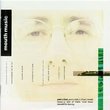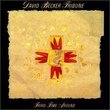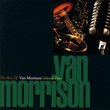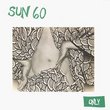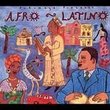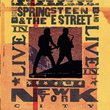| All Artists: Charles Mingus Title: Passions of a Man: The Complete Atlantic Recordings (1956-1961) Members Wishing: 5 Total Copies: 0 Label: Atlantic / Wea Original Release Date: 10/28/1997 Release Date: 10/28/1997 Album Type: Box set Genres: Jazz, Pop Styles: Avant Garde & Free Jazz, Modern Postbebop, Bebop Number of Discs: 6 SwapaCD Credits: 6 UPCs: 081227287122, 075678131318, 081227287160 |
Search - Charles Mingus :: Passions of a Man: The Complete Atlantic Recordings (1956-1961)
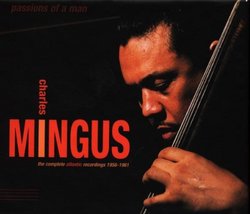 | Charles Mingus Passions of a Man: The Complete Atlantic Recordings (1956-1961) Genres: Jazz, Pop
Charles Mingus's Atlantic recordings represent the first full realization of his immensely original talent, pressing the boundaries to create an ever more fluent, expressive music. While his contemporaries moved in various... more » |
Larger Image |
CD DetailsSynopsis
Amazon.com Charles Mingus's Atlantic recordings represent the first full realization of his immensely original talent, pressing the boundaries to create an ever more fluent, expressive music. While his contemporaries moved in various directions--third stream, soul, free jazz--Mingus seemed to embrace them all. His creative energy is already apparent in his first Atlantic session, a quintet from 1956 with saxophonists Jackie McLean and J.R. Monterose. The sudden tempo shifts of "Pithecanthropus Erectus" introduce a new turbulence, while the programmatic sound effects of "A Foggy Day" stretch the sonic limits. Mingus's bass is an ever more expressive instrument as well, driving the different ensembles to greater heights, with the explosive "Haitian Fight Song" among the early masterpieces here.The set highlights the appearance of sidemen who could participate fully in Mingus's visionary work, including trombonist Jimmy Knepper and drummer Dannie Richmond. The multi-reed player Eric Dolphy was unquestionably his greatest collaborator, and the two could engage in startlingly speechlike instrumental conversations. The live recordings from the 1960 Antibes Jazz Festival present what may well have been Mingus's greatest band, with Dolphy's leaping, skittering, free-jazz virtuosity effectively contrasted with Booker Ervin's booting, full-toned tenor on charging, gospel-infused pieces such as "Wednesday Night Prayer Meeting" and "Better Git It in Your Soul." The final Atlantic session presents another change in direction, with Mingus switching to piano and singing some manic blues in the company of Roland Kirk, another musician well attuned to Mingus's always complex aims. The final CD consists of a revealing interview with Mingus discussing his work. Like the 1959 Columbia recordings and some of the later Impulse material, this is essential Mingus. --Stuart Broomer Similarly Requested CDs
|
CD ReviewsEssential listening. Michael Stack | North Chelmsford, MA USA | 07/22/2005 (5 out of 5 stars) "The decade from 1956 to 1966 was a period of great discovery, advancement and codification of the music of Charles Mingus. During this time period, his music developed its uniqueness, its edge, that gospel-meets-hard bop with a splash of stride and a hint of free jazz. So many of his masterpieces were recorded during this time period, and his output is pretty much universally of extraordinarily high quality. In 1956, Mingus signed a contract with Atlantic Records, and over the next five years recorded enough material for five studio albums and one brilliant live album as well as finding the time to contribute as a sideman to a Teddy Charles record. This set collects all of that material together with an interview by Nesuhi Ertegun. The studio records are all pretty much essential-- "Pithecanthropus Erectus", generally regarded as his first masterpiece, opens the set. The band for the session includes alto saxophonist Jackie McLean and pianist Mal Waldron, and finds Mingus' music developing that sort of classical/third stream influence thats been so prevelent to create tunes filled with odd rhythms, aggressive tempo shifts, and fantastic soloing. The title track is one of his best loved pieces, but the entire album is essential. The album's followup, "The Clown" in not quite as good but no less essential. The first of many Mingus albums to include drummer Dannie Richmond, Mingus is at his most diverse-- taking on ironic comedy (the title track), the blues ("Blue Cee"), Charlie Parker ("Reincarnation of a Love Bird") and his own ferocious blend of jazz, gospel and ethnic musics ("Haitian Fight Song"). The recording is augmented by two extra tracks (which eventually ended up being released as half of "Tonight At Noon"), the somewhat extraneous "Passions of a Woman Loved" and the totally inexplicible "Tonight At Noon". Showing off Mingus' strength as a composer, it races at breakneck speed, changes direction, and makes your head spin through its fractured lines while still holding together brilliantly. "Blues and Roots" finds Mingus in a different mood, featuring a nonet with four reeds and two trombones, Mingus explores his heritage as a musician, taking on gospel ("E's Flat Ah's Flat Too"), Dixie (standout "My Jelly Roll Soul"), and the blues ("Cryin' Blues") while still managing to sneak in a piece so unique as to defy categorization ("Tensions"). Additionally on this collection, the record is augmented by four alternate tkaes, finding the songs at times embryonic ("My Jelly Roll Soul") and at times just not quite as good. The final Atlantic studio album during this tenure, "Oh Yeah", is one of the most unique in Mingus' catalog. Featuring Mingus on piano and vocals, most of the vocal numbers are blues shouts that are amusing but fairly unessential ("Devil Woman", "Oh Lord, Don't Let Them Drop That Atomic Bomb On Me") and there's a looseness to the music that weakens it. Still, its nice to hear Roland Kirk guesting with Mingus, and it includes three extra tracks (the second half of "Tonight At Noon") including the first and in many ways best reading of Mingus' "Peggy's Blue Skylight", a lovely feature for Kirk on manzello. Often in boxed sets, I find live albums to be sort of an extra, but "Mingus at Antibes" could never be thought in such a fashion. Finding Mingus experimenting with free jazz band arrangements and structures, he works without a piano player with several extended performances where reedmen Eric Dolply (in particular) and Booker Ervin as well as trumpeter Ted Curson really cut loose with liquid, fluid lines and powerful improvisations over just the rhythm section of Mingus and Richmond. And just in case an hour of ferocious improv through Mingus originals ("Better Git Hit In Your Soul", the underplayed "What Love?", featuring a brilliant dialog between Mingus and Dolphy, the latter on bass clarinet) wasn't enough, Bud Powell joins the band on encore "I'll Remember April", a superb performance worth the cost of the boxed set by itself. Mingus' date with Teddy Charles is more of a curiosity than anything else. The music feels pretty uninspired and is at times frustrating-- Mingus is just starting to get cooking on "Just One of Those Things" when it starts to fade out. Similarly, the interview, while interesting, really isn't what anyoen is after with this set, but its a nice-to-have that you'll play once or twice. The set comes in a large slip cover with two hardcover books-- one contains the six CDs, each housed in their own carboard sleeve, the other contains lengthy liner notes with essays by Sue Mingus, producer Joel Dorn, engineer Tom Dowd, and music historians including a track-by-track analysis. It also features reproductions of the original liner notes from the LP issues of these recordings. If you're coming into Mingus, I'd suggest purchasing this set. At some point, you'll probably want it (although all the material barring the interview is available separately). If you're a Mingus fan and don't have some of these albums, this is definitely worth the investment. Highly recommended." Essential for the serious fan. Ravi Desai | India | 04/25/2000 (5 out of 5 stars) "This substantial 6CDset collects all of Mingus' recording on the Atlantic label. The first 5CDs contain all the material on the following LPs Pithecanthropus Erectus, The Clown, Blues & Roots, Oh Yeah, Tonight at Noon and Mingus at Antibes, as well as a few alternate takes. Most of these albums belong in any serious jazz collection and this box set is a great way to aquire them all. All the material is grouped in chronological order by recording session and more or less follows the original LP listings. The sicth CD is devoted to a interview of Mingus by Nesuhi Ertegun. Most people will only need to listen to this once. As usual , Rhino records has packaged everything nicely with the box contains two hardbound books. the first book holds all the CDs in sleeves while the second book has all the track information, some interesting essays on Mingus and the original liner notes. It is a little long but makes good reading. While this is a great Mingus set, it is by no means complete. I would advise serious jazz fans to also get the columbia 1959 recordings which includes the classic Mingus Ah Um" Essential stuff Paul Romano | 12/29/2002 (5 out of 5 stars) "This is very intense, unique jazz and all of it is pretty much classic stuff. If you're not familiar with Mingus, try Mingus Ah Um first, its a big chunk of great music crammed on one disk (with no alternative takes!). Mingus also recorded for Columbia, RCA, Bethlehem and Candid during this time period so there are cheaper ways to explore the Mingus muse to find out if he is your cup of tea (hey- get them out of the library!). If it is still too expensive, Blues and Roots and Live at Antibes (both on this box set) are dynamite albums worth having (IF you like Mingus). Needless to say, if you're a Mingus fan you don't need to read this review! Anyway, music aside, the box is beuatifully designed with a sturdy book full of good photos and info and the disks in a neat album resembling those old ones that 78's came in (hence the origin of the name "album"). The interview with Eregun is fascinating and I could listen to it more often than Jean Shepard doing "The Clown". The original engineering by Tom Dowd was superb and the sound on these disks is great. Hope this was some help?"
|

 Track Listings (8) - Disc #1
Track Listings (8) - Disc #1
